Creative Writing:- It Is Corn🌽 harvesting; Roasted Or Broiled, Which Do You Prefer?
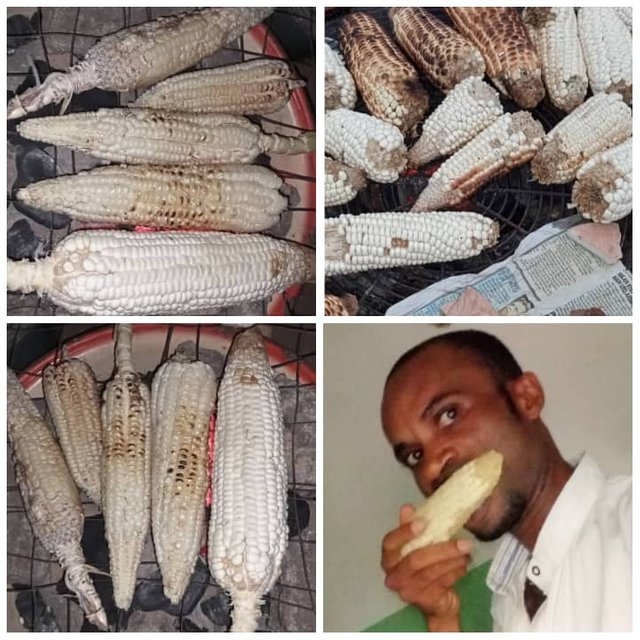
Fellow Steemians in my Nigeria domain, I'm yet to know if there is any person that dislikes eating corn or making use of corn products? Because the sweetness and nutritional content of corn, makes it an irresistible delicacy when prepared as food.
Here in the south eastern part of Nigeria, It is the corn harvesting season, so come let's enjoy this together!
But hold on and don't rush it yet! Before we eat it, we have to know the various growth stages the corn undergoes, prior to the harvesting and then eating it.
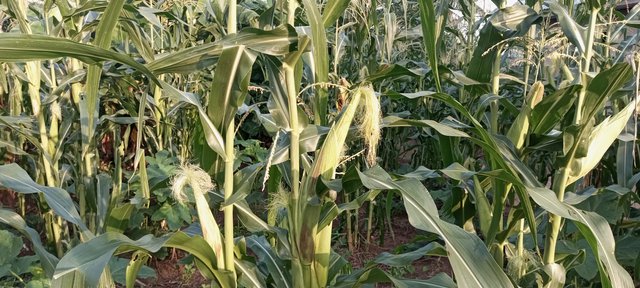
English name: Corn
scientific Name: Zea Mays
Family Group: Poaceae
Corn is said to have been first found in southern Mexico over 9,000 to 10, 000 years ago. Since then, it has gone around the world through various transformative processes and finally what it is today. Each maize plant produces two cobs on both sides of the plant.
Corn is a long annual cereal plant that produces either white, yellow or red seeds with long narrow green leaves spreading left and right. Corn is planted at the onset or early beginning of the rainfall. It is an edible grain that has a very short life span of between 3 months from the time it is planted to maturity and subsequent harvest.
Corn is one of the few crops that when planted, they grow fast and matures early. It takes 4 to 7 days to germinate. and undergoes various growth stages before it matures.
Corn undergo different stages before it gets matured. Below are some of the stages it undergo:
- The tender or grass stage:
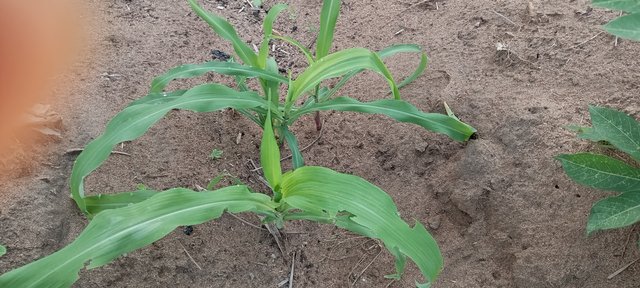
This is the struggle for survival stage. It is when the corn starts to sprout from the soil. It will be competing with the grass and and later, it will outgrow the grass. Care should be taken not to match on or weed it out during weeding.
- The Rapid Stem growth stage:
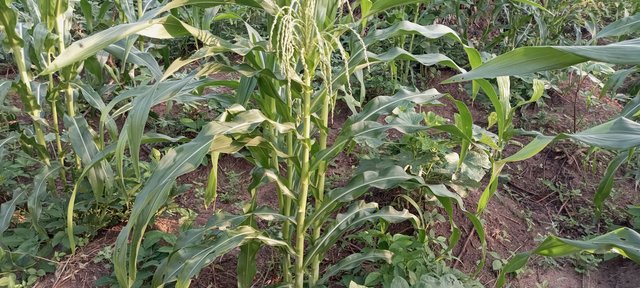
At this stage of growth, the corn grows to become a more visible plant with the stem growing rapidly. It starts flowering to get the silking stage.
- The silking stage:

This stage is used to determine if the corn has a high-yielding potential or not. The silk can be seen on a stand-alone maize plant. .This silking can easily be seen when a particular plant is taken a closer look at. maize plantations, average silking occurs if 50% of the plants start silking. Pollination takes place at the base and goes up toward the tip. After it has taken Potassium, nitrogen and phosphorus now occur at a rapid stance.
- The Blistering Stage:
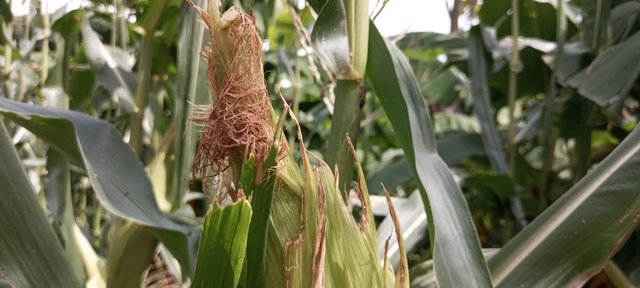
This takes place some days after the silking. The silks begin to darken and get dried away. The colour of the kernels may be white, yellow or red depending on the colour of the seed that is been planted. At this point, it forms small blisters having clear fluids.
The seed will develop an embryo that may occur at about 12 days after silking, silks darken and dry out. Kernels will be white and form a small blister containing clear fluid.
- Milking Stage:
This happens right inside the cob. When silking must have occurred close to 20 days, the kernels begin to change colour and the clear fluids change to milk colour and accumulate starch. This takes place about days after silking has occurred.
- The Doughing Stage:
Taking 26 days after silking occurred, the formed starchy liquid in the kernels takes a dough-like form. At this stage, the Kernels will contain about 70% moisture, and begin denting. on top.
- The Denting stage:
Counting close to 38 days silking must have occurred, and almost all of the kernels gets dented and containing close to 55% moisture. The Cob has developed a definite colour: The colour could be pink, white, or red. Harvesting might start at this stage, but this will be dependent on the degree of moisture needed.
- Finally, the harvesting:
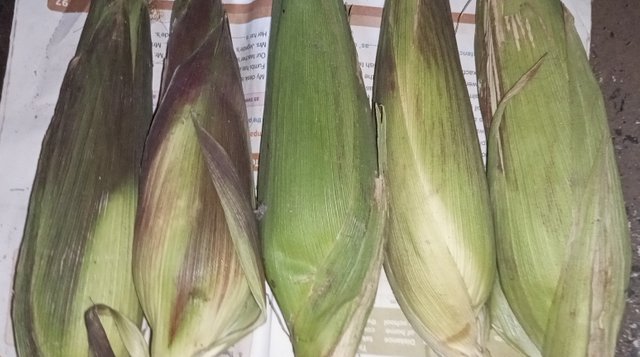
This is the maturity stage and it happens at or exactly 3 months after silking, The kernels have reached the needed weight and moisture.
Harvesting takes place and can now be prepared for food.
Corn can be useful for different applications and purposes ranging from industrial use to consumption as food. Corn is a raw material useful in the following ways:
Corn can be used in the manufacturing of items like:
- Starch
- Rubber Tyres
- Corn syrup
- Plastics
- Corn oil
- Animal feed
- Ethanol
- Biodiesel
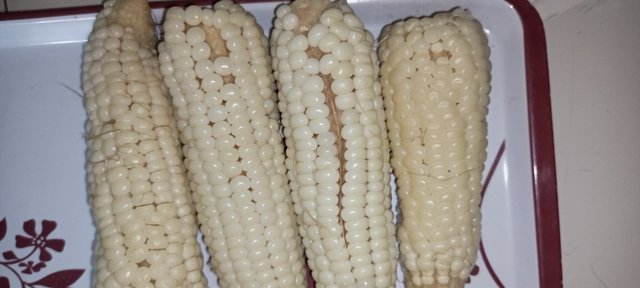
The corn serves as food and nutrition to humans. It can be prepared as food in the following ways:
- Boiled
- Roasted
- Cornbread
- Corn meal
- Popcorn
Corn has a high dietary fibre and is made up of various antioxidants that help combat diseases.
Corn is a seasonal crop that is planted once a year. But technology has improved such that it can now be planted around the year.
This edible cereal comes in different colours but the common ones are white and yellow. can be prepared in a variety of enjoyable forms. This can either be done by boiling, roasting, popcorn, corn meal, etc.
it can be cultivated in a commercial quantity or for family consumption.
Corn has many industrial uses or applications, as well as food and nutritional benefits as highlighted above.
So friends, come along let's enjoy it together!

All images belong to me!
Cc:
@josepha
@richy20
@goodybest
That's a good idea and topic, actually corn has many industrial uses. That's good 👍